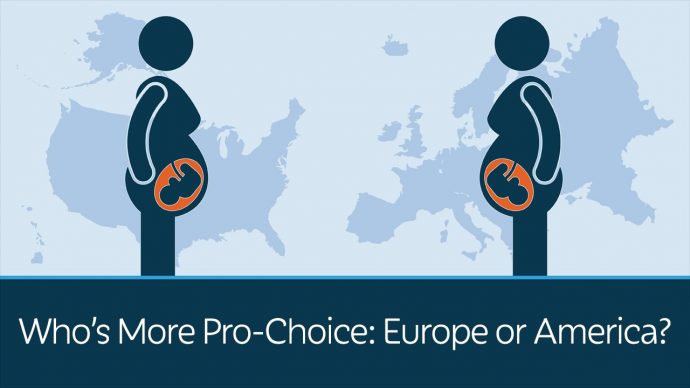How many people know this — or would even guess it? Here’s the intro to the following video from Prager University — a partial transcript follows the video:
Are abortion laws more conservative in America or in Western Europe? Would a pregnant woman seeking an abortion have an easier time getting one in Texas or in…Germany? The answers, as talk show host Elisha Krauss explains, may just change how you think about America’s abortion laws.
American Progressives look to Western Europe as the model of what America should be. So, here’s an area of European social policy that Progressives will definitely want to examine more closely: Europe’s attitude toward…abortion.
It happens to be much more restrictive than that of the United States. That’s right. Western Europeans — as progressive and secular as they are — have a much more conservative attitude about abortion than American Progressives do.
Here is what Emily Matchar wrote in The Atlantic magazine in 2013: “I assumed that Western Europe would be the land of abortion on demand…But as it turns out, abortion laws in Europe are both more restrictive and more complicated than that. Waiting periods, decried by American pro-choicers as…unreasonably burdensome, are common…”
In Germany, for example, nearly all abortions are illegal after 12 weeks. And there is a three-day waiting period and mandatory counseling before a woman is allowed to have an abortion, even during the permitted first 12 weeks. That’s more restrictive than Texas.
In the U.S., abortions are legal in every state before a pregnancy has reached its 20th week. After that some restrictions do kick in. 11 states prohibit abortions after the 20th week of pregnancy. 20 states prohibit abortions at the point of viability, which is when a baby can survive outside the womb. Those states usually recognize that as being between 23-25 weeks…3 states prohibit abortion after the 28th week…And 7 states plus Washington, D.C. allow abortions to be performed at any point in a pregnancy — even if the mother could safely give birth to a viable and healthy baby.
Read more: Prager University

